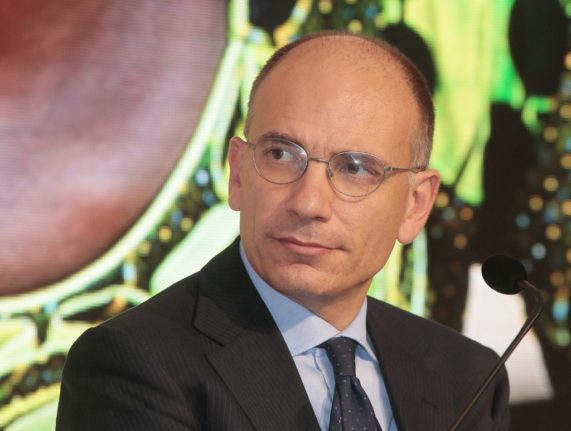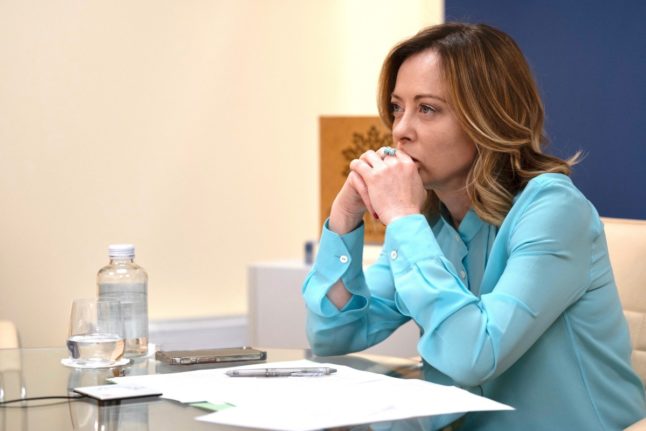Former prime minister Enrico Letta, leader of the centre-left Democratic Party, declared his pro-European credentials in a video in English, French and Spanish, while deriding the euroscepticism of Italy’s right-wing parties.
It echoes the trilingual video published this week by Giorgia Meloni, tipped to take power in the eurozone’s third largest economy next month, in which she sought to distance her Brothers of Italy party from its post-fascist roots.
“We will keep fighting to convince Italians to vote for us and not for them, to vote for an Italy that will be in the heart of Europe,” Letta said in English.
His party and Meloni’s are neck-and-neck in opinion polls ahead of September 25 elections, both with around 23 percent of support.
But Italy’s political system favours coalitions, and while Meloni is part of an alliance with ex-premier Silvio Berlusconi and anti-immigration leader Matteo Salvini, Letta has struggled to unite a fractured centre-left.
Speaking in French perfected in six years as a dean at Sciences Po university in Paris, Letta emphasised European solidarity, from which Italy is currently benefiting to the tune of almost 200 billion euros ($205 billion) in
post-pandemic recovery funds.
“We need a strong Europe, we need a Europe of health, a Europe of solidarity. And we can only do that if there is no nationalism inside European countries,” he said.
He condemned the veto that he said right-wing Hungarian Prime Minister Viktor “Orban — friends and allies of the Italian right — is using every time he can (to) harm Europe”.
In Spanish, Letta highlighted Meloni’s ties with Spain’s far-right party Vox, at whose rally she spoke earlier this summer, railing at the top of her voice against “LGBT lobbies”, Islamist violence, EU bureaucracy and mass
immigration.
In English, he condemned the economic legacy of Berlusconi, a three-time premier who left office in 2011 as Italy was on the brink of economic meltdown, but still leads his Forza Italia party.
Letta’s programme includes a focus on green issues — he intends to tour Italy in an electric-powered bus — and young people, but he has made beating Meloni a key plank of his campaign.
Meloni insisted in her video that fascism was in the past, a claim greeted with scepticism given her party still uses the logo of a flame used by the Italian Social Movement set up by supporters of fascist leader Benito Mussolini.
In a joint manifesto published this week, Meloni, Berlusconi and Salvini committed themselves to the EU but called for changes to its budgetary rules — and raised the prospect of renegotiating the pandemic recovery plan.
Elections were triggered by the collapse of Prime Minister Mario Draghi’s government last month, and are occurring against a backdrop of soaring inflation, a potential winter energy crisis and global uncertainty sparked by
the Ukraine war.



 Please whitelist us to continue reading.
Please whitelist us to continue reading.
Member comments